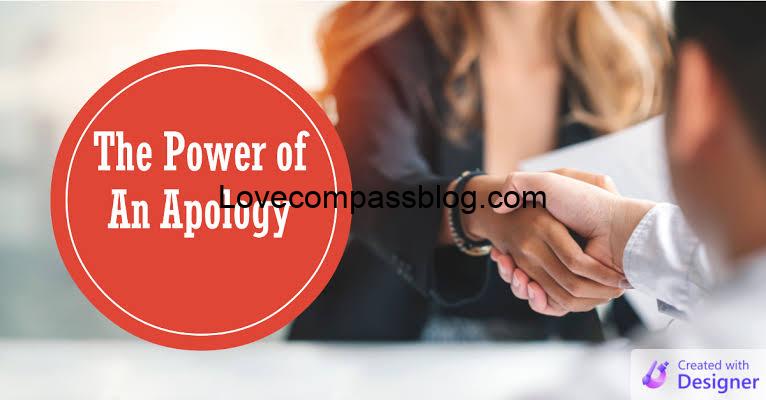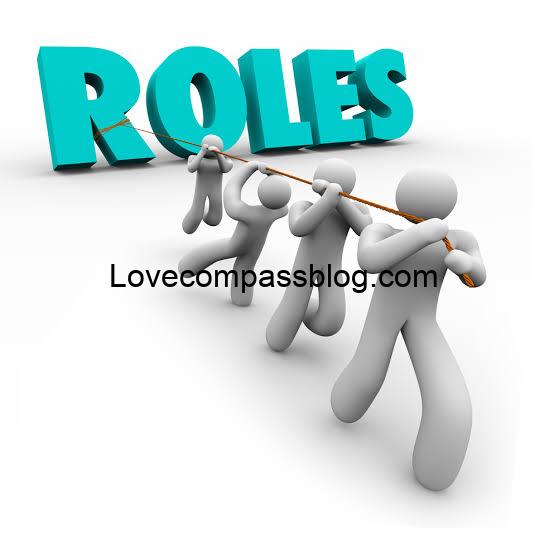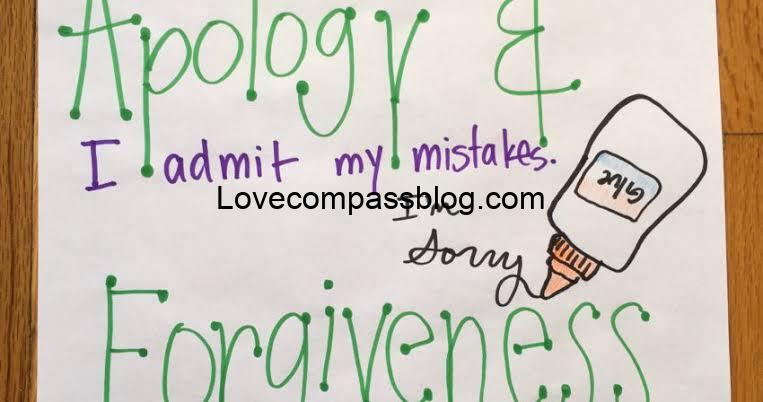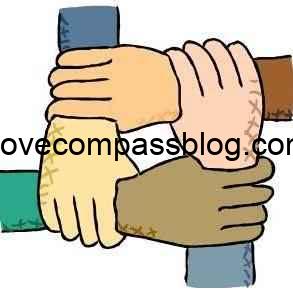The Power of Apology: Healing After a Fight

Conflict is a natural part of human relationships, and even the closest bonds can be tested by disagreements and misunderstandings. However, the way we handle these conflicts can make all the difference in maintaining and even strengthening our relationships. One of the most effective tools for resolving conflicts and fostering healing is the act of apologizing. This article delves into the concept of apology, exploring its profound impact on relationships, the right ways to apologize, and how it can be used to heal emotional wounds.
Power of Apology

The Psychology of Apology
At its core, an apology serves as an acknowledgment of wrongdoing and the emotional hurt caused. When someone apologizes, they validate the feelings of the person they’ve wronged, which can significantly reduce negative emotions such as anger and resentment. This validation is crucial because it shows the offended party that their feelings are respected and understood, which is the first step toward healing.
The psychological impact of an apology extends beyond the immediate resolution of a conflict. It can help restore the balance of power in a relationship, particularly if the wrongdoing created feelings of betrayal or inequality. By apologizing, the wrongdoer not only admits their fault but also reaffirms their commitment to the relationship, thus strengthening the bond.
The Unique Power of Apologies
An apology’s power lies in its ability to mend the emotional and psychological rifts that conflicts create. When you apologize, you’re not just addressing the specific issue at hand; you’re also addressing the emotional aftermath of that issue. This makes apologies uniquely powerful—they’re a way to show that you care about the other person’s feelings and are committed to making things right. This act of contrition can defuse a tense situation, making it easier to move forward.
Furthermore, an apology can prevent future conflicts by demonstrating that you’re aware of the impact of your actions and are willing to change. This proactive approach can be especially important in relationships where recurring issues can lead to a buildup of resentment. By apologizing, you set the stage for more open and honest communication, which is key to resolving underlying problems before they escalate.
Dynamics of Apologizing
The process of apologizing involves both the person offering the apology and the person receiving it. For an apology to be effective, it needs to be genuine, specific, and delivered with empathy. The receiver, on the other hand, needs to be open to accepting the apology and moving forward. This dynamic exchange is crucial because it requires both parties to be vulnerable and willing to work toward resolution.
A successful apology is one where the wrongdoer takes full responsibility without deflecting blame or offering excuses. It’s not just about saying “I’m sorry,” but about demonstrating an understanding of the harm caused and expressing a sincere desire to make amends. The receiver’s role is equally important—they must be willing to listen, forgive, and let go of the hurt, allowing the relationship to heal.
Types and Techniques of Apologies

Techniques for Crafting Effective Apologies
An apology should be tailored to the situation and the relationship involved. For it to be effective, it needs to be heartfelt and show genuine remorse. One of the most critical aspects of an effective apology is specificity—acknowledging exactly what you did wrong and how it affected the other person. This shows that you truly understand the impact of your actions.
For instance, saying, “I’m sorry for being late,” is much less effective than, “I’m sorry for being late today; I realize it made you feel unimportant, and I will make sure to manage my time better in the future.” The latter not only acknowledges the specific action but also the emotional consequence and the commitment to change.
Strategies for Different Situations
Different contexts require different approaches to apology. In professional settings, apologies often need to be more formal and focused on the implications of the mistake, as well as the steps taken to rectify it. For example, if a project deadline is missed, an effective apology might include a plan for how to catch up and prevent future delays.
In personal relationships, the emotional component of an apology is more significant. Here, the focus should be on the relationship itself—expressing how much the relationship means to you and how you’re committed to improving it. For example, if an argument with a partner escalated, a good apology might include an acknowledgment of the hurtful words used and a commitment to communicate more thoughtfully in the future.
The Skill of Apologizing
Apologizing effectively requires a combination of empathy, self-awareness, and communication skills. It’s important to choose the right moment to apologize, ensuring that the other person is ready to listen. Apologizing too soon, before emotions have cooled, can lead to a defensive reaction rather than a receptive one.
Moreover, the sincerity of the apology is critical. People can usually tell when an apology is forced or insincere, which can do more harm than good. A truly effective apology comes from a place of genuine remorse and a desire to make things right. This sincerity helps to rebuild trust and opens the door to reconciliation.
Best Practices for Apologizing
To ensure that your apology is effective, follow these best practices:
- Be Specific: Clearly state what you’re apologizing for and why it was wrong.
- Avoid Excuses: Don’t dilute your apology with justifications for your actions.
- Express Remorse: Show that you genuinely regret your actions and the hurt they caused.
- Offer to Make Amends: If possible, suggest ways to rectify the situation or prevent it from happening again.
- Apologize Timely: Don’t wait too long to apologize, as unresolved conflicts can lead to lingering resentment.
These practices help to ensure that your apology is received in the spirit it’s intended and that it contributes to the healing process.
The Role of Apology in Conflict Resolution

Managing Conflict Through Apology
Apologies are essential in managing and resolving conflicts. They help to de-escalate tense situations by showing a willingness to acknowledge and address the issue. This openness to resolution encourages the other party to also take a more conciliatory stance, making it easier to find a mutually acceptable solution.
In conflict resolution, an apology can serve as a turning point. It can transform a potentially destructive situation into an opportunity for growth and understanding. By admitting fault and expressing a desire to make things right, the wrongdoer can help to shift the focus from blame to resolution. This approach fosters a more positive environment where both parties can work together to resolve the conflict.
Apology as a Pathway to Resolution
When a conflict arises, an apology can be the first step toward finding a resolution. By acknowledging the mistake and the harm it caused, the wrongdoer sets the stage for a productive conversation about how to move forward. This can lead to a more collaborative approach to problem-solving, where both parties feel heard and respected.
Apologies also help to clear the air, allowing both parties to let go of their grievances and focus on rebuilding the relationship. Without an apology, the conflict may fester, leading to ongoing tension and resentment. By apologizing, you demonstrate a commitment to resolving the issue and maintaining the relationship.
Making Amends After a Dispute
Apologizing after a dispute is crucial for making peace and moving forward. However, an apology alone may not be enough—especially if the conflict caused significant emotional harm. In such cases, it’s important to take additional steps to make amends. This might involve offering a solution to the problem, compensating for any losses, or making a concrete commitment to change.
The goal of making amends is to show that you’re not only sorry but also committed to preventing similar issues in the future. This helps to rebuild trust and shows that you value the relationship enough to put in the effort to repair it.
Apology in Relationships

The Importance of Apologizing in Relationships
In close relationships, conflicts are inevitable. However, how you handle these conflicts can have a significant impact on the health and longevity of the relationship. Apologizing is a critical component of conflict resolution in relationships, as it shows that you care about the other person’s feelings and are committed to maintaining the relationship.
A sincere apology can prevent minor conflicts from escalating into major issues. It can also help to quickly resolve misunderstandings, allowing both parties to move forward without lingering resentment. In this way, apologies are a key tool for maintaining harmony and trust in relationships.
Rebuilding Trust After a Conflict
Trust is the foundation of any healthy relationship, and once it’s damaged, it can be difficult to rebuild. A sincere apology is often the first step in this process. By taking responsibility for your actions and showing a genuine desire to make things right, you can begin to repair the trust that was lost.
Rebuilding trust takes time and effort, but a well-delivered apology can lay the groundwork for this process. It shows that you understand the impact of your actions and are committed to change. Over time, as the other person sees that you’re serious about making amends, trust can be gradually restored.
The Role of Apologies in Marriage and Friendships
In both marriage and friendships, apologies are essential for resolving conflicts and maintaining strong bonds. In a marriage, where conflicts can have a significant impact on daily life, an apology can prevent minor issues from growing into larger problems. By apologizing, you show that you value the relationship and are willing to work to keep it strong.
In friendships, apologies help to quickly resolve misunderstandings and prevent them from damaging the relationship. By acknowledging your mistakes and showing that you care about the other person’s feelings, you can maintain the trust and closeness that are the hallmarks of a strong friendship.
Emotional Intelligence in Apologizing
Emotional intelligence plays a significant role in the process of apologizing. It involves being aware of your own emotions, understanding the emotions of the other person, and using this understanding
Emotional intelligence plays a significant role in the process of apologizing. It involves being aware of your own emotions, understanding the emotions of the other person, and using this understanding to navigate the apology process effectively. An emotionally intelligent apology is one that goes beyond simply saying “I’m sorry.” It involves actively listening to the other person’s feelings, acknowledging their pain, and expressing genuine empathy. This level of emotional awareness can make your apology much more meaningful and impactful.
When you tap into emotional intelligence, you are better equipped to recognize the right timing for an apology, choosing a moment when the other person is ready to listen and engage. Additionally, emotional intelligence helps you to communicate your apology in a way that resonates with the other person, addressing not just the surface issue but also the underlying emotional hurt.
Addressing Common Challenges in Apologizing
Even with the best intentions, apologizing can sometimes be difficult. One common challenge is pride—many people struggle to apologize because it requires admitting fault and showing vulnerability. Overcoming this challenge involves recognizing that an apology is not a sign of weakness, but rather a strength. It takes courage to own up to your mistakes and make things right.
Another challenge is fear of rejection or a negative response. Some people hesitate to apologize because they’re unsure how the other person will react. However, it’s important to remember that an apology is about taking responsibility for your actions, regardless of the other person’s reaction. While there’s no guarantee that the apology will be accepted, offering it is still the right thing to do.
Lastly, some people struggle with the belief that apologizing will make them lose face or respect. In reality, the opposite is often true—apologizing can actually increase respect, as it shows integrity and a commitment to doing what’s right. By addressing these challenges head-on, you can become more comfortable with the process of apologizing and more effective in resolving conflicts.
Apology and Forgiveness

The Connection Between Apology and Forgiveness
Apology and forgiveness are deeply interconnected, with each playing a crucial role in healing after a conflict. When you apologize, you open the door to forgiveness by showing that you’re remorseful and willing to make amends. This makes it easier for the other person to let go of their hurt and move toward forgiveness.
Forgiveness, in turn, completes the healing process by allowing both parties to release any lingering negative emotions and move forward. Without forgiveness, an apology may only provide temporary relief, as unresolved feelings can resurface later. By forgiving, the wronged party releases their emotional burden, allowing the relationship to fully heal.
Why Forgiveness is Important
Forgiveness is not just about letting the other person off the hook—it’s also about freeing yourself from the emotional weight of the conflict. Holding onto anger and resentment can be damaging, both to your well-being and to the relationship. Forgiveness allows you to let go of these negative emotions and restore peace within yourself.
In relationships, forgiveness is essential for maintaining a strong and healthy bond. It allows both parties to move past conflicts without holding onto grudges, which can erode trust and intimacy over time. By forgiving, you show that you value the relationship more than the conflict, which can strengthen the connection between you and the other person.
The Process of Forgiving
Forgiving is a process that often takes time, especially if the conflict was particularly hurtful. It’s important to acknowledge your feelings and give yourself the space to process them. Forgiveness doesn’t mean forgetting or excusing the wrongdoing—it means choosing to move forward without letting the hurt control your emotions or actions.
To truly forgive, you need to understand the other person’s perspective and the reasons behind their actions. This doesn’t mean justifying what they did, but rather recognizing that everyone makes mistakes. By focusing on the bigger picture and the value of the relationship, you can find it in your heart to forgive.
How to Encourage Forgiveness After an Apology
After you’ve apologized, it’s important to encourage forgiveness by showing that you’re committed to change. This means following through on any promises you made during the apology and making a consistent effort to avoid repeating the same mistakes. By demonstrating that you’ve learned from the conflict, you make it easier for the other person to forgive and move forward.
Additionally, be patient and understanding if the other person needs time to forgive. Healing doesn’t happen overnight, and it’s important to give them the space they need to process their feelings. By being supportive and showing continued care and respect, you can help facilitate the forgiveness process and strengthen your relationship.
The Role of Self-Forgiveness
In addition to seeking forgiveness from others, it’s equally important to practice self-forgiveness. Holding onto guilt and self-blame can be just as damaging as harboring resentment toward others. By forgiving yourself, you acknowledge that you’re human and capable of making mistakes, but also capable of learning and growing from them.
Self-forgiveness allows you to move forward with a sense of peace and self-compassion, rather than being weighed down by regret. It also sets a positive example for others, showing that forgiveness is a key part of the healing process. By embracing self-forgiveness, you become more resilient and better equipped to handle future conflicts with grace and empathy.
The Impact of Unresolved Conflicts on Relationships
When conflicts are left unresolved, they can have a lasting negative impact on relationships. Unresolved issues can create a buildup of tension, leading to ongoing arguments and a breakdown in communication. Over time, this can erode trust and create emotional distance between the parties involved.
An apology serves as a crucial step in addressing and resolving these conflicts. By acknowledging the issue and expressing a desire to make things right, you prevent the conflict from festering and causing further damage. This proactive approach to conflict resolution helps to maintain the health and stability of the relationship.
The Healing Power of a Sincere Apology
A sincere apology has the power to heal emotional wounds and restore harmony in a relationship. It shows that you care about the other person’s feelings and are committed to making amends. This act of contrition can help to rebuild trust and create a sense of closure, allowing both parties to move forward without lingering hurt or resentment.
Healing through apology is a process that requires time, patience, and effort. It’s not just about saying the right words, but about demonstrating a genuine commitment to change. By consistently showing that you’ve learned from the conflict and are working to prevent similar issues in the future, you can foster a deeper connection and a more resilient relationship.
Final Thoughts on the Importance of Apology
Apologies play a vital role in resolving conflicts, healing emotional wounds, and maintaining strong, healthy relationships. By understanding the power of a sincere apology and practicing it effectively, we can navigate the challenges of relationships with greater empathy and wisdom. Whether in personal or professional settings, the ability to apologize and make amends is an essential skill that contributes to lasting harmony and mutual respect.
Embrace the power of apology in your relationships—it’s a simple yet profound way to heal, grow, and strengthen the bonds that matter most.





